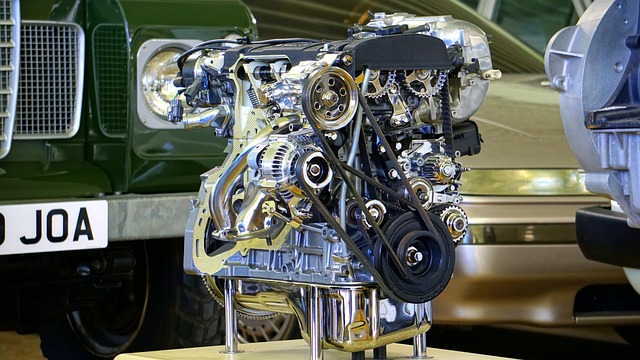The fields of mechanical and civil engineering are similar in a lot of ways—they both involve designing, planning, and constructing. Their main difference is the types of structures they work on.
Both types of engineering offer great careers, but mechanical and civil engineers each need a specific type of knowledge and skill set to successfully do their jobs.
Both mechanical and civil engineers are important to the growth of technological and structural development worldwide and can be used in almost every major construction project.
They’ll be used together often to provide a broader amount of experience, knowledge, and skills to make sure the project is carried out and maintained in the most efficient and safe way possible.
What’s the Difference Between Mechanical Engineering and Civil Engineering?
The main difference between mechanical engineering and civil engineering is that civil engineering focuses on infrastructures regularly used by the general public, and mechanical engineering is used to build machinery and equipment.
Mechanical engineers usually work with moving parts like gears and motors and civil engineers generally design static structures like roads, bridges, and buildings.
Mechanical engineers can be very inventive people who are constantly looking at ways to improve, test, and reinvent their prototypes and machines. Civil engineers design and construct structures with an established framework and concept and can’t generally test new types of construction on a large scale.
The main priorities of civil engineers are the materials used for their structures, the durability and strength of their structures, and the environmental impacts that their designs could have.
Civil engineering projects are often larger, which means they can take longer to complete. Mechanical engineering projects, however, are usually smaller and more technically complex. They concentrate on the smaller, technical bits of an object, and make smaller tweaks to improve its user-friendliness and efficiency.
Mechanical and civil engineers have similar educational requirements, which means that anyone who wants to get a career in the civil or mechanical engineering industries will follow similar career paths to get a job.
Both types of engineers will need a Bachelor’s Degree in Engineering and can specialize in either civil or mechanical engineering if they want to choose a specialization early on. Throughout their college education, engineering students will receive a mixture of in-class and on-site training.
This will allow them to learn the mathematic, engineering, and design principles they’ll need to get a job after graduation. The on-site education they’ll get (which is usually more tailored to civil engineers) will focus on the surveying, mapping, and preparatory procedures they’ll have to complete before construction can begin.
This can include learning about high-tech machinery that’s used on the job site for more effective and detailed results. Students might learn about digital twin technologies or be allowed to operate drones, which are crucial in the surveying and mapping processes.
Students will learn what type of data must be collected, how to use this data in the design and planning processes, and what environmental aspects have to be considered for different types of projects.
The mechanical engineering field can transition into research as well. If this is something you’re interested in, you’ll have to earn your master’s or a doctoral degree. You’ll also need to earn a graduate degree if you’d like to specialize in a certain area or become a professor.
What is Mechanical Engineering?
Mechanical engineering is the branch of engineering focused on designing and building machines and pieces of equipment that are used in the larger buildings that civil engineers construct, or by the construction workers building these projects.
Industries like mechanics, weapons, transportation, and automation all hire mechanical engineers to help build the machinery they need to keep their businesses growing.
Mechanical engineers can have a lot of responsibilities that might vary depending on which stage of construction they’re working on. Below, we’ve listed some of the duties a mechanical engineer typically has:
- Creating and drawing up designs for products.
- Producing, testing, and developing prototypes.
- Analyzing their finished products for any faults.
- Fixing any faults using scientific and engineering principles.
- Managing and controlling the manufacturing process of the product.
What Types of Projects Do Mechanical Engineers Work On?
Mechanical engineering projects include anything from power tools to elevators and robotics. It applies scientific, mathematical, physical, and artistic principles to create and maintain high-quality machinery.
Mechanical engineers can tackle projects of all sizes, including the design and manufacturing of cars, planes, weapons, machines, and tools. Civil engineers tend to work on infrastructures and larger buildings.

via Pixabay
What Skills Do I Need to Be a Mechanical Engineer?
Mechanical engineers need a certain set of skills that includes everything from an artistic mindset to creative problem-solving and reasoning skills. Expertise in mathematics, science, and technology would be significantly helpful for getting a job in the future.
Key skills for a mechanical engineer include the following:
- Working knowledge of mathematics
- Working knowledge of physics
- Working knowledge of technology
- Teamwork
- Problem-solving
- Reasoning
- Creativity
- Basic artistic capabilities
What is a Mechanical Engineer’s Salary?
The median salary of a mechanical engineer is $95,300 per year. The exact amount you earn will depend on your education level, location, experience, and specialization you chose—if any.
What is Civil Engineering?
Civil engineering is the branch of engineering that focuses on the design, construction, and maintenance of large structures or infrastructures that are typically used by the general public.
They work both on and off-site, carrying out important responsibilities that will make the design, planning, and construction processes easier.
They collect data about the landscape at sites that they want to build on. They conduct surveys and risk assessments that will provide the initial information needed to design and plan the details of the structure.
They’ll also take note of the surrounding environment—the type of land and the wildlife that lives there—to ensure that the structure isn’t posing an environmental threat.
In the office, they’ll draw up the plans, maps, and drawings that are used to construct these projects. Financial, construction, and environmental preparations have to be made so that construction runs smoothly.
There are several subdivisions of civil engineering, including everything from structural and management engineering to the more specific civil engineering types like environmental, transportation, hydraulic and hydrologic, and geotechnical engineering.
Civil engineers with different specializations will often work together, which gives them different angles of expertise to make sure the quality of the project is high and the construction process is as straightforward as possible.
If a large project were to be built in a coastal area, you might see coastal engineers, structural engineers, materials engineers, water resources engineers, and environmental engineers all working together.
What Types of Projects Do Civil Engineers Work On?
Civil engineers usually work on large structures and infrastructures and can build everything from sports stadiums to railways and sewage systems and they play a crucial role in helping societies around the world advance and prosper.
While mechanical engineers may invent or refine new technologies, civil engineers focus on the larger systems that encourage globalization, trade, and travel.
Environmental influences and impacts are priorities for civil engineers, and they not only have to consider how their structure could negatively affect the surrounding natural area, but they also have to find solutions as to how their constructions can benefit the environment.
This can include making the most of solar energy or creating irrigation systems that can help water crops more efficiently.
Not only do civil engineers make incredibly positive impacts on the way systems work for our use, but they also help promote environmental protection, which, during our global warming current crisis, is a vital priority.

via Pixabay
What Skills Do I Need to Be a Civil Engineer?
The top skills you’ll need to become a civil engineer are strong problem-solving skills and deep knowledge of mathematics and physical principles to make sure the large structures and infrastructures you build have maximum stability and durability.
Civil engineers usually work together to guarantee that structures are designed, planned, and built in the most efficient way they can manage. Because of that fact, teamwork, communication, and leadership skills are also necessary to become a successful civil engineer.
No matter which subdiscipline you decide to specialize in, you’ll need to be an expert in your chosen niche.
If you become a coastal engineer, for example, you’ll need a working knowledge of physical water principles, marine biology, water systems, water cycles, erosion, and beach geography and extensive knowledge in structural engineering.
What is a Civil Engineer’s Salary?
The average salary for a civil engineer was $88,050 per year in 2021. You can earn a little more depending on your experience, location, and level of education.
Civil engineers sometimes get promoted into senior management jobs, which typically pay a lot more. These jobs come with more responsibility, but they can pay up to $100,000 per year.
Entry-level civil engineers (those with less experience) are more likely to be paid around the $60,000 mark each year.
You’ll have to earn your degree to become a civil engineer and the work can be difficult and stressful and doesn’t stop for any weather conditions, but the pay is very good, especially if you get promoted.
Civil engineering can be a rewarding job and lots of people choose this profession based on its potential to make a difference both to the environment and to the public.
Final Thoughts
There are plenty of similarities between mechanical and civil engineering, but they are different in their focuses and subdisciplines. Both areas of engineering are broad and have plenty of room for specialization, but they each come with a different need for specific skills and areas of knowledge.
Civil engineers design and construct larger projects, with a focus to promote environmental protection and physical safety. Mechanical engineering takes a more inventive approach, and they use prototypes and different technologies to improve the ways construction projects are carried out as well as the internal, technical attributes of buildings.
Both career paths are fulfilling and can pay well. Both provide opportunities to make a real difference in the way that society functions and can help the world continue to make great technological advancements.




